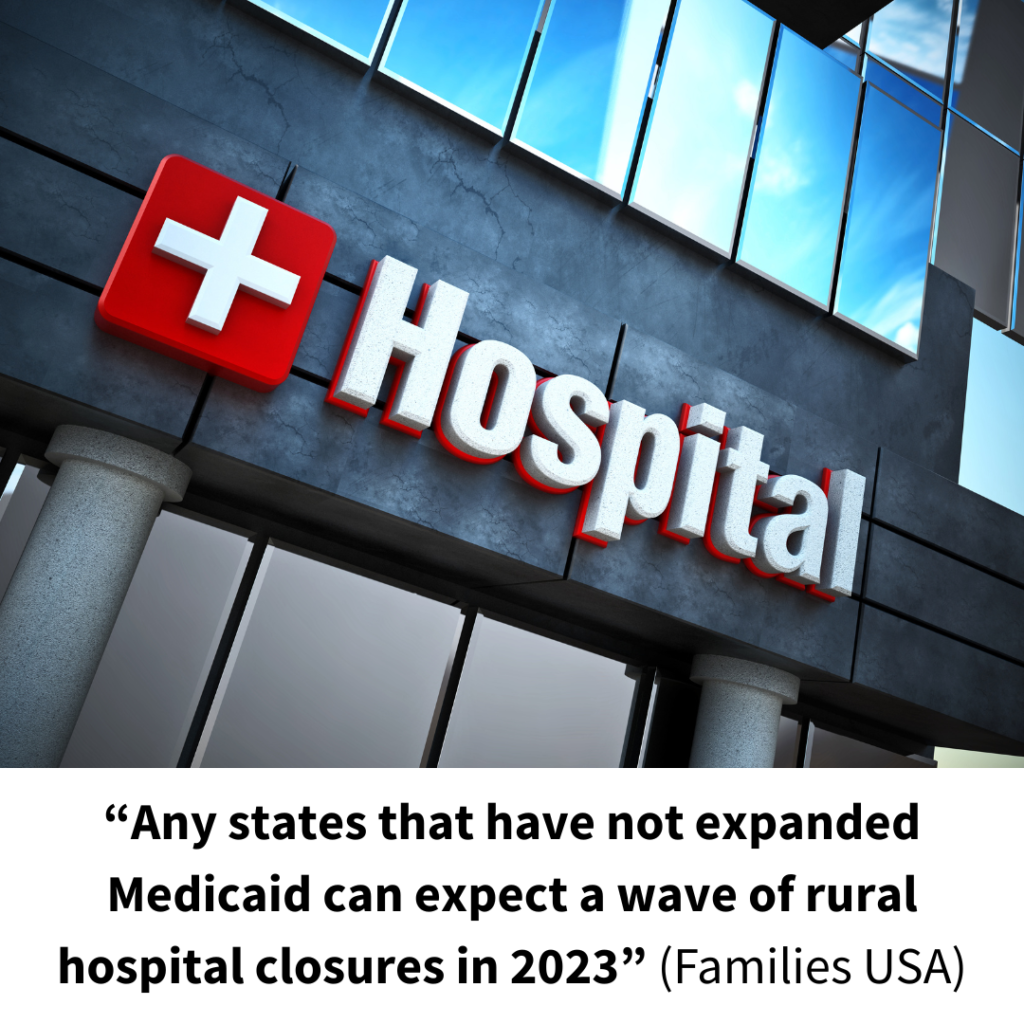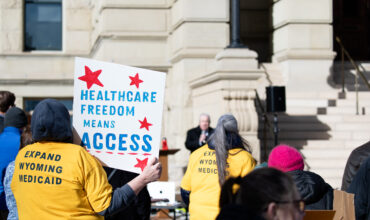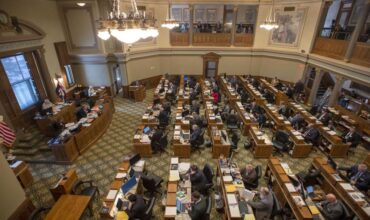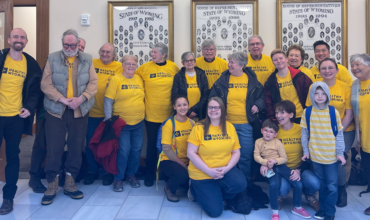
“Any states that have not expanded Medicaid can expect a wave of rural hospital closures in 2023” (Families USA)
We already know that Medicaid Expansion is crucial for Wyoming’s future. It’s good for business, it helps us take care of our veterans, it’s key to tackling our mental health crisis.
It might also be what saves Wyoming’s rural hospitals from closing down.
A new report from Families USA makes clear how important it is that we pass Medicaid expansion in order to keep open our rural hospitals, which are a lifeline to healthcare for tens of thousands of people across Wyoming.
Families USA is a non-partisan organization that advocates for healthcare consumers. Their new report points to a dark future for Wyoming’s rural communities if we don’t expand Medicaid.
Many rural hospitals across Wyoming and the nation stand on a financial cliff-edge as a result of uncompensated care. The Wyoming Hospital Association estimates that our state hospitals lose $120 million each year treating uninsured patients who cannot afford to pay.
The Families USA report details the perfect storm of crises hitting rural hospitals in 2023. First, COVID-19 funding has stopped. Second, the end of public emergency means that uncompensated care will go up. And third, an economic recession may be on the horizon.
These factors are a recipe for disaster. “Any states that have not expanded Medicaid can expect a wave of rural hospital closures in 2023”, the report warns. And without our rural hospitals, travel to get medical care will increase by an average of 20 miles. Ambulance travel times will be 76 perecent longer. These changes could have life-or-death consequences.
And it’s not just travel times that could get worse. For instance, financial woes are closing rural obstetric care units. Counties across the nation are becoming “maternity deserts.” In Wyoming, Kemmerer and Rawlins both saw the closure of their labor and delivery services last year. These communities join Riverton as Wyoming towns where there exists no facilities to help deliver a baby.
Now, mothers in Kemmerer must drive over an hour to Evanston, whatever the weather. Mothers in Rawlins must travel 100 miles to Laramie over one of the most dangerous—and often closed—stretches of interstate in the nation.
States that have expanded Medicaid do not face nearly as severe of problems. The median operating margins at their rural hospitals are stronger. They are seeing profound drops in uncompensated care costs—in Montana, uncompensated care dropped from $143 million in 2015 (prior to expansion) to $89 million in 2019 (following expansion). This equates to a 44 percent decline in uncompensated care costs as a share of hospital operating expenses.
The likelihood of rural hospital closure is currently 62 percent lower in expansion states. Wyoming could reap similar benefits, but instead we fall further and further behind.
Wyoming is as strong as its communities. Small towns are our heart and soul. Yet we can only thrive as a state of that heart and that soul are healthy. Without Medicaid Expansion, they won’t be.




